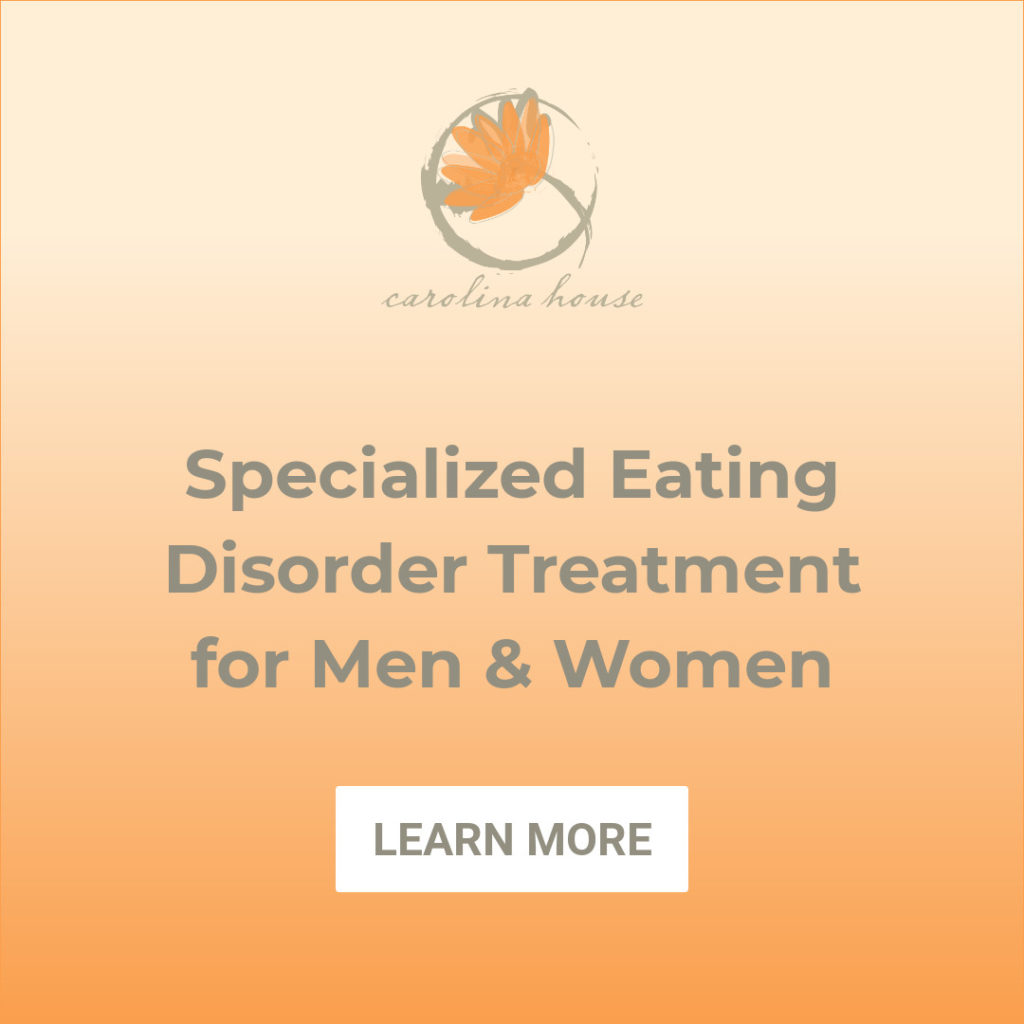- Calls to this hotline are currently being directed to Within Health, Fay or Eating Disorder Solutions
- Representatives are standing by 24/7 to help answer your questions
- All calls are confidential and HIPAA compliant
- There is no obligation or cost to call
- Eating Disorder Hope does not receive any commissions or fees dependent upon which provider you select
- Additional treatment providers are located on our directory or samhsa.gov
The Link Between Diabetes and Eating Disorders

Contributor: Staff at Carolina House
While the exact reason for the connection isn’t entirely known, studies have shown clear links between diabetes and eating disorders. Research suggests that eating disorders among women are more common in those who have diabetes. Those who have Type 1 diabetes are twice as likely to suffer from disordered eating, and those who have Type 2 diabetes are also at risk [1]. Eating disorders and diabetes can be extra dangerous when they occur together, making it essential to receive prompt treatment for both.
Type 1 Diabetes and Eating Disorders
Insulin is a hormone the pancreas makes naturally, helping the body convert sugar into energy. However, those who have Type 1 diabetes do not make enough insulin on their own, requiring them to take insulin daily to maintain energy and health.
Diabulimia involves restricting insulin in an attempt to control calorie intake and lose weight. Studies indicate that up to 35% of women who have Type 1 diabetes struggle with diabulimia at some point in their lives [2]. Restricting insulin involves not taking it at all or taking very little, forcing the body to use body fat as energy. This can result in dangerous weight loss, high blood sugar levels, and high levels of ketones, the acid byproduct of fat that is burned off.
Type 2 Diabetes and Eating Disorders
Type 2 diabetes is associated with an increased risk for eating disorders, specifically binge-eating disorder [3]. Binge-eating disorder involves consuming large amounts of food in a short period, even when not physically hungry.
Those who have Type 2 diabetes don’t respond well to insulin. This results in the body taking longer to produce sufficient insulin levels to deal with a rise in blood sugar. When the blood sugar levels rise without enough insulin available, tiredness, hunger, and food cravings often occur [3]. Uncontrolled blood sugar levels and food cravings can trigger episodes of bingeing and make the eating disorder more difficult to manage.
While diabetes can lead to binge eating, binge eating can also be the cause of diabetes. Studies have shown that those who have binge-eating disorder consume higher amounts of fats and carbohydrates [3]. Sweets, breads, and pasta are some of the most common foods people binge eat. Research confirms that those who have a greater preference for sweets and fatty foods binge eat more frequently [3]. Left untreated, these eating patterns can lead to obesity as well as health complications like diabetes.
Call for Help 844-485-6232
The Dangers of Diabetes and Eating Disorders
When an eating disorder and diabetes are present together, the symptoms of both can worsen and make treatment more challenging.
Left untreated, diabulimia can cause a range of health concerns, including:
- Dehydration
- Electrolyte imbalance
- Irregular menstrual cycles
- Yeast infections
- Inadequate wound healing
- Kidney disease
- Liver disease
- Heart disease
Diabulimia can also lead to ketoacidosis, a dangerous condition that can occur when too much acid is in the blood [2]. This can result in damage to the blood vessels and organs and can even cause organ failure, resulting in coma or death.
For those who have binge-eating disorder as well as diabetes, bingeing episodes can cause insulin insensitivity that can worsen the symptoms of diabetes. One study found that the insulin sensitivity of adults who binged decreased by 28% compared with that of those who did not binge [3]. Those who have binge-eating disorder may also be more likely to develop Type 2 diabetes at a younger age [3]. This makes early intervention highly important.
Signs of Eating Disorders
Understanding the signs of eating disorders that are often associated with diabetes is an important part of getting treatment.
Signs of diabulimia include:
- Fear that insulin will cause weight gain
- Neglecting diabetes management
- Restricting certain foods to lower insulin dosage
- Frequent nausea and vomiting
- Persistent thirst
- Changes in eating habits
- Secrecy around eating and refusal to eat with others
Signs of binge-eating disorder include:
- Eating until uncomfortably full
- Eating large amounts of food even when not physically hungry
- Weight gain
- Eating in secret
- Feelings of shame and embarrassment about eating
- Feelings of low self-esteem
If you or someone you know is struggling with diabetes and symptoms of disordered eating, it is important to receive eating disorder treatment right away to avoid interference with diabetes management.

References:
[1] American Diabetes Association. Types of eating disorders. American Diabetes Association. https://www.diabetes.org/healthy-living/mental-health/eating-disorders [2] Timberman, C. (2021, April 6). Treating type 1 diabetes and eating disorders. Centraljersey.com. https://centraljersey.com/2021/04/06/health-matters-4-9-treating-type-1-diabetes-and-eating-disorders/ [3] Chevinsky, J. D., Wadden, T. A., & Chao, A. M. (2020). Binge eating disorder in patients with type 2 diabetes: Diagnostic and management challenges. Diabetes, metabolic syndrome and obesity: targets and therapy, 13, 1117–1131. https://doi.org/10.2147/DMSO.S213379About Carolina House
 Carolina House is an eating disorder treatment center that serves people age 17 and older of all genders. Within our residential and outpatient programs, we offer a range of services, such as LGBTQ- and male-inclusive programming, to help individuals who are struggling with eating disorders and co-occurring mental health conditions. Our treatment connects individuals with the care they need to achieve long-term recovery from eating disorders and other mental health concerns.
Carolina House is an eating disorder treatment center that serves people age 17 and older of all genders. Within our residential and outpatient programs, we offer a range of services, such as LGBTQ- and male-inclusive programming, to help individuals who are struggling with eating disorders and co-occurring mental health conditions. Our treatment connects individuals with the care they need to achieve long-term recovery from eating disorders and other mental health concerns.
The opinions and views of our guest contributors are shared to provide a broad perspective of eating disorders. These are not necessarily the views of Eating Disorder Hope, but an effort to offer a discussion of various issues by different concerned individuals.
We at Eating Disorder Hope understand that eating disorders result from a combination of environmental and genetic factors. If you or a loved one are suffering from an eating disorder, please know that there is hope for you, and seek immediate professional help.
Published on June 2, 2021. Published on EatingDisorderHope.com
Reviewed & Approved on June 2, 2021, by Jacquelyn Ekern, MS, LPC

The EatingDisorderHope.com editorial team comprises experienced writers, editors, and medical reviewers specializing in eating disorders, treatment, and mental and behavioral health.


